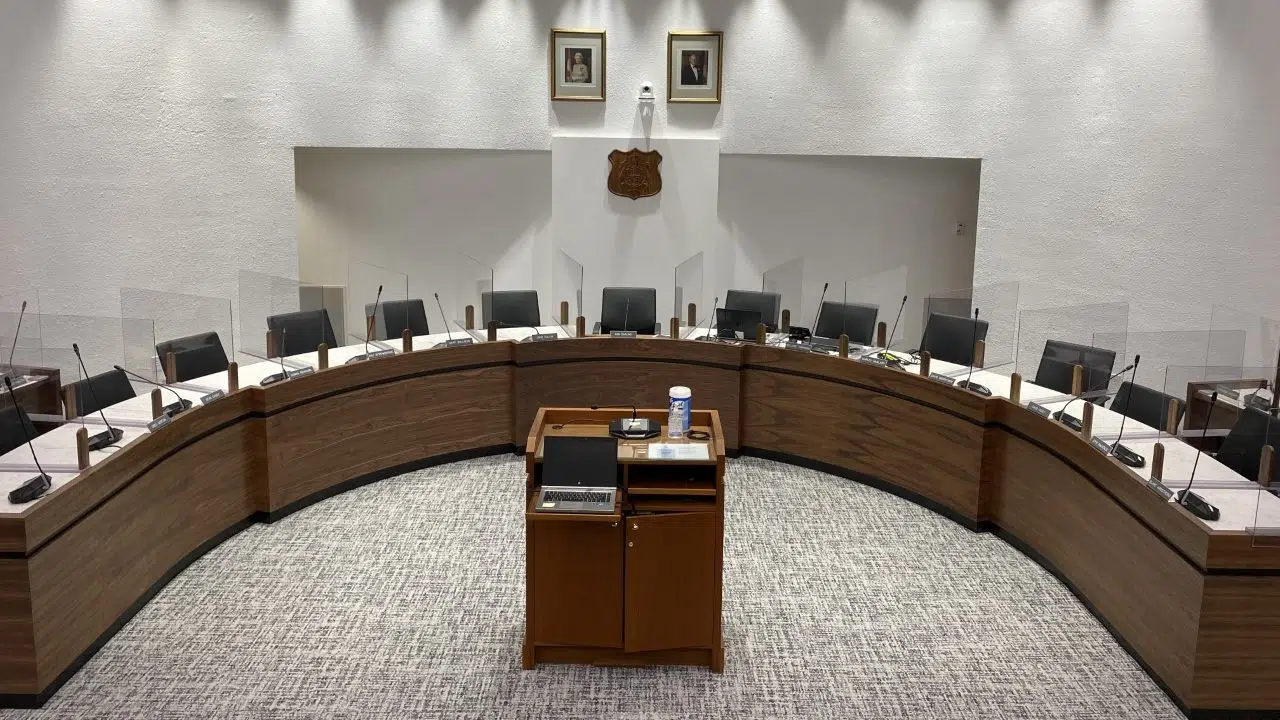
The Saint John Common Council chambers. Image: Brad Perry
As we prepare to mark the first National Day for Truth and Reconciliation, Saint John is taking steps to foster reconciliation.
City staff unveiled a series of initiatives they plan to implement over the coming weeks and months during last week’s council meeting.
General counsel Melanie Tompkins said truth is more easily achieved than reconciliation, but both take time and patience.
“One of our major learnings so far is that the work of truth and reconciliation requires a measured and appropriate pace that gives equal weight to first truth and then reconciliation,” Tompkins told council.
“There will undoubtedly be ample opportunities for miscommunication and failed intentions. Cultural preferences for different approaches and pace will also vary. Nonetheless, this Common Council has decided to embark on this path with purpose and goodwill, recognizing the significant impact of Truth and Reconciliation.”
While some of the ideas are designed for council and staff, others were directed toward council members.
Tompkins said one of the council initiatives is a “blanket exercise,” which explores the relationship between Indigenous and non-Indigenous peoples.
“There are blankets arranged on the floor which represent land and participants are invited to step into the roles of First Nations, Inuit, and later Métis people,” said Tompkins. “The workshop helps people understand how the colonization of this land impacts those who were here long before settlers arrived.”
Staff also recommended that council hear a presentation from and have a discussion with Mi’gmawe’l Tplu’taqnn Incorporated, a non-profit group representing the Mi’gmaw First Nations in New Brunswick, and Connecting to the Land, a non-profit organization consisting of members of the Wolastoqey Mothers and Grandmothers.
Council members and staff have been receiving daily Truth and Reconciliation moments leading up to the first National Day for Truth and Reconciliation on Thursday. They aim to educate on the history of Indigenous peoples, residential schools, and the need for Truth and Reconciliation.
The city is also looking at more intercultural competency, conflict resolution, human rights, and anti-racism training for staff. In addition, it is recommended that council and senior staff complete a course directed at Indigenous cultural awareness.
Tompkins said staff will regularly seek input from Indigenous stakeholders as they work to foster reconciliation.







